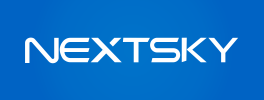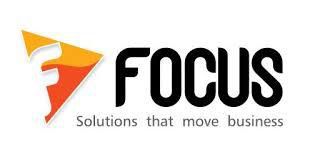Managing Startup and Small Businesses with CRM

A bundle of questions rush through everyone's mind who is deciding to have their own startups, which is natural, and to some extent, it can be terrifying, especially when you are a complete rookie without any knowledge of having a business. Managing it might feel like a topsy-turvy road where you are continuously juggling between multiple tasks such as managing finances, retaining the staff, and securing a loyal customer base. So, you might be looking for a solution to alleviate this hassle and provide you with a smooth-running business while managing it simultaneously. Isn't it?
If - Yes, then CRM software is the solution you were looking for. But before that, let us find out what does CRM mean?
CRM software:
CRM software is commonly known as customer relationship management software. CRMs are extremely important because, without good stakeholder relationships, it is impossible for a startup to grow. While the core of a CRM is the same for large or small companies, the CRM for startups has some unique features.
Some features found in CRM for software for startups include:
● Sales pipeline management
● Dashboards and reports
● Email integration
● Marketing automation
● Lead management
All these features of CRM for startups help keep track of all the deals, customer purchases, and conversation history, hence ensuring everyone in your startup has the most recent and relevant information about your customers at their fingertips. The sales department gets this enablement and can provide the best customer experience possible and can convert 65% of consumers into long-term leads.
In other simple terms, a good CRM can increase your business revenue. After listening to this line, you might have become more curious about knowing different types of CRM softwares that match your profile. Isn't it? So let us proceed further with CRMs.
Different types of CRMs:
● Operational CRM: It concentrates on simplifying customer interactions by blending sales, marketing, and service processes. Operational CRM helps you store customer information, deals, and leads in a unified repository. It integrates leads coming through different channels.
Two popular CRM software are Hubspot and Salesforce.
● Analytical CRM: Analytical CRM denotes the systematic electronic analysis of collated customer data. Customer data is defined as contact data, customer properties, and information derived from both online and offline behaviour.
Examples of analytical CRM software are Zoho Analytics and Salesforce Wave Analytics.
● Collaborative CRM: Collaborative CRM allows you to create communication between different organizations related to customer service. It can include various Company divisions, such as marketing sales, customer service, technical support, external customers, vendors, and distributors. For better customer interaction, try Pipedrive or Copper.
● Campaign Management CRM: It is the planning, execution, tracking, and analysis of marketing initiatives. Campaign management software provides businesses to manage the various aspects of a marketing campaign. You can distribute it via email.
● Strategic CRM: A strategic CRM is your game plan for improving the relationship with your customers and your teams from sales, marketing and customer service.
Here are a few signs that your businesses need CRM software:
● Get more customers and keep them: To keep running, any startup needs new customers and retains old ones. CRM helps in finding customers and engaging with them through social media. Social media CRM, therefore, is worth investing in.
● Overwhelming Lead Flows: When your startup starts levelling up, you start attracting leads and prioritizing leads over customers becomes a typical part. Therefore, CRM becomes important to you as it helps you prioritize your leads.
● Poor customer service: Finding customers is easy, but Keeping customers is the main challenge where a lot of businesses fail. A powerful CRM software routes cases to the corresponding agents, thus increasing efficiency.
● Account Management: Startups often go through numerous cycles of funding, and, in order to be able to continue operation, they need to manage their funds. CRM solutions help you identify, cultivate and manage these important relationships, allowing you to improve donor retention.
Features of CRM:
1. Customer Support: CRM builds relations and tends to have the most supportive features:
a. Case Management
b. 24*7 customer service portal
c. Live chat or call centre support
d. Rich knowledge base with listed FAQs
e. Dedicated support analytics options
2. Sales automation: CRM saves time by streamlining manual tasks. It also includes several other functions, such as:
a. Contact Management
b. Account Management
c. Pipeline management
d. Task management
e. Product and price management
f. Order management
3. Marketing Automation: It refers to the Technology that can help a business to market on different online channels. This CRM software includes:
a. Email marketing
b. Lead management
c. Marketing campaign management
d. Data analysis of marketing efforts
4. Platform: The main deciding factor which supports user interaction is the platform being used. And following are the fundamental CRM attributes that stabilize the platform factors:
a. Customization
b. User and Access management
c. Test environments
d. Content Management
e. Overall Performance
f. Document Generation
How to choose CRM for your business/startup/enterprise:
● It must be scalable and must upgrade easily.
● It must get your tasks streamlined. The most important incorporations you can look out for are:
○ Outlook with CRM
○ CRM with G-suite
○ CRM with Microsoft Office
○ Excel with CRM
● It should fit in with existing operations and kind of daily usage.
● It must be easy to operate across organizational levels.
● It must allow a logical flow of action and task execution.
● If you are seeking a seller, then you must look for vendors who understand your industry the best and has sufficient CRM experience.
Best small business CRMs:
1. Vtiger ( Best all-in-one CRM for small businesses): Vtiger includes sales, marketing, and help desk features in their all-in-one plan. It also includes project and inventory management, telephony, social media integration, and internal collaboration. This makes it ideal for small businesses looking for an affordable CRM.
2. Hubspot (Best free CRM for small businesses):
This CRM allows unlimited users and up to a million contacts. It also includes some features normally found in paid plans, such as live chats, email tracking, and meeting schedule.
3. ClickUp ( High-rated productivity CRM):
It is used by teams in small and large companies to organize accounts and get a geographic view of clients with the Map view. This also assigns each stage of the sales pipeline like other CRMs.
4. Odoo (Best Open Source CRM):
It is a suite of business management software tools. This CRM helps in getting accurate forecasts by:
a. Getting the insights required to make smarter decisions
b. Designing customized dashboards of business. c. Detailed real-time reports and flow charts and sharing.
5. Agile CRM (Best marketing CRM):
Agile CRM assigns tasks and tracks email campaigns. It also can gamify sales processes. It has the following key features: a. Keep track of stages and project milestones in your sales deals
b. Contact customers by using the one-click calling features and voicemail automation
c. Sort tasks based on priority, due date, owner, or status
6. Insightly (Best CRM for project management):
Insightly combines sales and project management capabilities, which makes it ideal for small businesses that need to keep their sales and project delivery teams working collaborative and efficiently.
7. Creatio (Best Small Business CRM for automating sales processes):
It allows users to automate sales and other functions without the need for code.
8. Streak (Best small business CRM for Gmail users):
This CRM manages all your contacts, deals, pipelines, and tasks from Gmail without the assistance of any second platform.
Conclusion:
Although the initial phase of a startup can be super challenging, once you get hold of the situation and become aware of the ongoing marketing trends, you become more powerful. And with CRM tools, this power rises to another level because they do all the managing work, which allows you to focus on expanding your business.
So, get your own startups today and start your enterprise journey.
For more startup-related knowledge or doubts, you can visit our site Steer Through and contact the expert guides to help you out with any issue.
All the best with your journey.
+0






Comments (0)